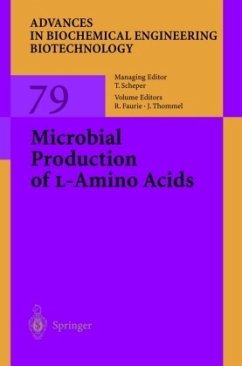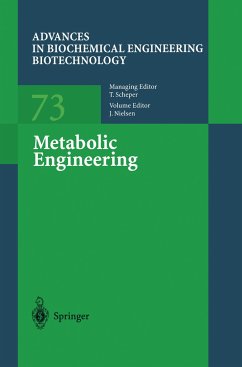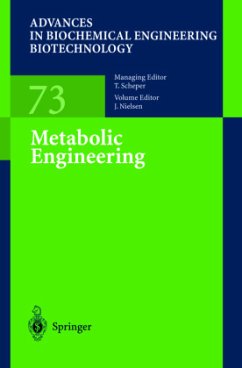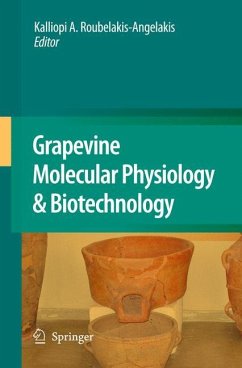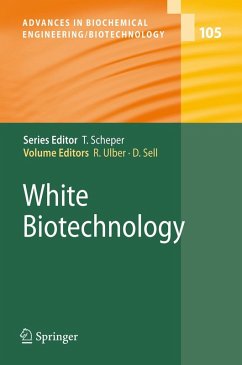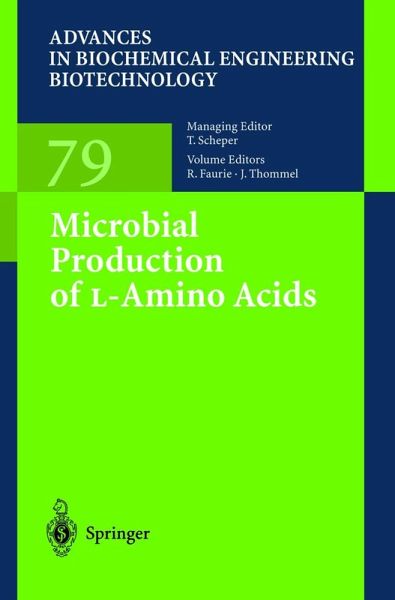
Microbial Production of L-Amino Acids
Versandkostenfrei!
Versandfertig in 1-2 Wochen
153,99 €
inkl. MwSt.

PAYBACK Punkte
77 °P sammeln!
This volume deals with "Microbial Production of L-Amino Acids" and presents five comprehensive, expert and actual review articles on the modern production of Amino Acids by application of biotechnologically optimized microorganisms. This includes not only the modern techniques of enzyme, metabolic and transport engineering but also sophisticated analytical methods like metabolic flux analysis and subsequent pathway modeling. A general review about industrial processes of Amino Acid production provides a comprehensive overview about recent strain development as well as fermentation technologies. It was our special interest to focus the other articles on the most important and best selling amino acids on the world market i.e. L-Glutamate, L-Lysine and L-Threonine. The authors of this special volume have contributed significantly to the progress of Amino Acid biotechnology in the last decades and earn our special gratitude and admiration for their expert review articles.
It was in 1908, when Prof. Kinue Ikeda, grandfather of Dr. T. Ikeda, a Japanese chemist discovered glutamic acid as a flavoring component in seaweed ("Kon bu") and soy hydrolysates. After neutralization with caustic soda, he isolated Mono Sodium Glutamate (MSG), a flavor enhancer that represented the initial product for the company Ajinomoto. The company's name is synonymous with its first product and MSG was setting the stage for large scale production of amino acids. MSG is still today's most important amino acid and flavor enhancer. This was not only the birth of the first industrial scale amino acid production from natural raw material hydrolysates but also the fundamental process for the isolation of other amino acids. Several proteins derived from soy, corn or wheat contain only approximately 10 20% glutamic acid and glutamine whereas the residues contain many other amino acids, such as the essential ones (leucine, isoleucine, valine, threonine, methionine, lysine, phenylalanine and tryptophan) and the semi essential ones (arginine, cyst(e)ine, histidine and tyrosine). It is, however, very difficult to separate and purify all these components from the crude initial hydrolysate and therefore not surprising that the market price for those amino acids was comparably high.





